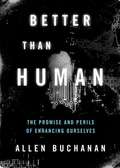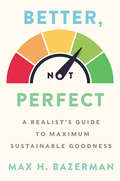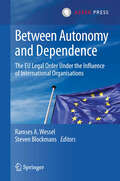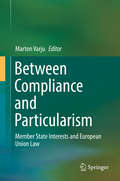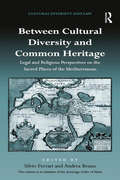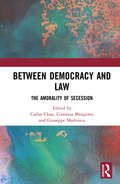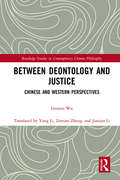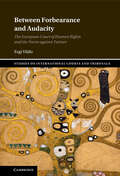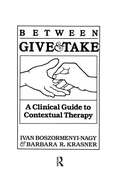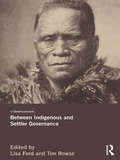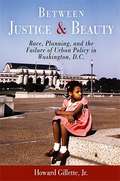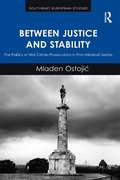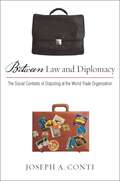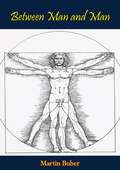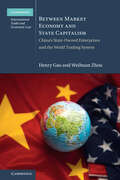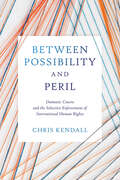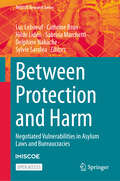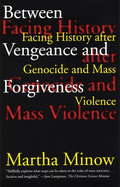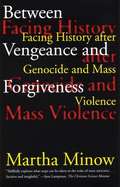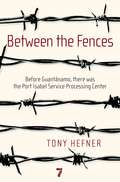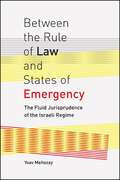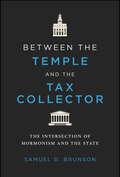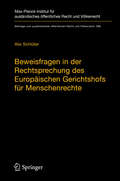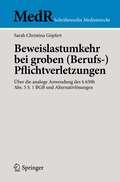- Table View
- List View
Better Than Human: The Promise and Perils of Enhancing Ourselves
by Allen BuchananIS IT RIGHT TO USE BIOMEDICAL TECHNOLOGIES TO MAKE US BETTER THAN WELL OR EVEN PERHAPS BETTER THAN HUMAN? Should we view our biology as fixed or should we try to improve on it? College students are already taking cognitive enhancement drugs. The U.S. Army is already working to develop drugs and technologies to produce "super soldiers." Scientists already know how to use genetic engineering techniques to enhance the strength and memories of mice, and the application of such technologies to humans is on the horizon. In Better Than Human, philosopher-bioethicist Allen Buchanan grapples with the ethical dilemmas of the biomedical enhancement revolution. Biomedical enhancements can make us smarter, have better memories, be stronger, quicker, have more stamina, live much longer, avoid the frailties of aging, and enjoy richer emotional lives. In spite of the benefits that biomedical enhancements may bring, many people instinctively reject them. Some worry that we will lose something important--our appreciation for what we have or what makes human beings distinctively valuable. Others assume that biomedical enhancements will only be available to the rich, with the result that social inequalities will worsen. Buchanan shows that the debate over enhancement has been distorted by false assumptions and misleading rhetoric. To think clearly about enhancement, we have to acknowledge that human nature is a mixed bag and that our species has many "design flaws." We should be open to the possibility of becoming better than human, while never underestimating the risk that our attempts to improve may backfire.
Better, Not Perfect: A Realist's Guide to Maximum Sustainable Goodness
by Max H. BazermanNegotiation and decision-making expert Max Bazerman explores how we can make more ethical choices by aspiring to be better, not perfect.Every day, you make hundreds of decisions. They’re largely personal, but these choices have an ethical twinge as well; they value certain principles and ends over others. Bazerman argues that we can better balance both dimensions—and we needn’t seek perfection to make a real difference for ourselves and the world.Better, Not Perfect provides a deeply researched, prescriptive roadmap for how to maximize our pleasure and minimize pain. Bazerman shares a framework to be smarter and more efficient, honest and aware—to attain your “maximum sustainable goodness.” In Part Two, he identifies four training grounds to practice these newfound skills for outsized impact: how you think about equality and your tribe(s); waste—from garbage to corporate excess; the way you spend time; and your approach to giving—whether your attention or your money. Ready to nudge yourself toward better, Part Three trains your eye on how to extend what you’ve learned and positively influence others.Melding philosophy and psychology as never before, this down-to-earth guide will help clarify your goals, assist you in doing more good with your limited time on the planet, and see greater satisfaction in the process.
Between Autonomy and Dependence: The EU Legal Order under the Influence of International Organisations
by Ramses A. Wessel Steven BlockmansThe European Union is traditionally seen as a new and partly separate legal order within the global legal system. At the same time, the EU is an important player in the global governance network. The strong and explicit link between the EU and a large number of other international organisations raises questions concerning the impact of decisions taken by those organisations and of international agreements concluded with those organisations (either by the EU itself or by its Member States) on the autonomy of the EU legal order. This book addresses the relationship between the EU and other international organisations by looking at the increasing influence of norms enacted by international organisations on the shaping of EU law.
Between Compliance and Particularism: Member State Interests and European Union Law
by Marton VarjuThe book examines how the interests of the member states, which provide the primary driving force for developments in European integration, are internalised and addressed by the law of the European Union. In this context, member state interests are taken to mean the policy considerations, economic calculations, local socio-cultural factors, and the raw expressions of political will which shape EU policies and determine member state responses to the obligations arising from those policies. The book primarily explores the junctions and disjunctions between member state interests defined in such a manner and EU law, where the latter expresses either an obligation for the member states to comply with common policies or an acceptance of member state particularism under the common EU framework.
Between Cultural Diversity and Common Heritage: Legal and Religious Perspectives on the Sacred Places of the Mediterranean (Cultural Diversity and Law)
by Silvio FerrariGoing beyond the more usual focus on Jerusalem as a sacred place, this book presents legal perspectives on the most important sacred places of the Mediterranean. The first part of the book discusses the notion of sacred places in anthropological, sociological and legal studies and provides an overview of existing legal approaches to the protection of sacred places in order to develop and define a new legal framework. The second part introduces the meaning of sacred places in Jewish, Christian and Islamic thought and focuses on the significance and role that sacred places have in the three major monotheistic religions and how best to preserve their religious nature whilst designing a new international statute. The final part of the book is a detailed analysis of the legal status of key sacred places and holy cities in the Mediterranean area and identifies a set of legal principles to support a general framework within which specific legal measures can be implemented. The book concludes with a useful appendix for the protection of sacred places in the Mediterranean region. Including contributions from leading law and religion scholars, this interesting book will be valuable to those in the fields of international law, as well as religion and heritage studies.
Between Democracy and Law: The Amorality of Secession
by Carlos Closa Giuseppe Martinico Costanza MargiottaThis volume purports to explore the legal and political issues triggered by the new wave of secessionism. More specifically, those issues concern the interplay between notions of democracy (and democratic ends and means) and law (and the rule of law and constitutionalism). Against this background, the editors use amorality in order to escape the terrain of the justification of secession by making a distinction between the democratic theory of secession and the theory of democratic secession. In the first section, the theoretical nexus democracy-secession has been approached both from a legal and political theory perspective. The second section of the book examines the instruments that the theory of democratic secession invokes in order to justify secession and presents both legal and political science contributions. The third section focuses on social movements and political actors. The fourth section focuses on two case studies due to the awareness of the importance of the difference between secession in a democratic occidental context (which call into play the discussion of the democratic theories) and separations in a non-democratic context (where the nexus between secession and democracy is not really central).
Between Deontology and Justice: Chinese and Western Perspectives (Routledge Studies in Contemporary Chinese Philosophy)
by Genyou WuIn China, political philosophy is still a comparatively new academic discipline. While there is no such phrase as “political philosophy” in ancient Chinese texts, there are elements within them that could be considered part of that field. Central questions of Chinese ancient political philosophy include the legitimacy of the source of political power, the foundation of moral rationality for the use of political power, and the purpose of political activities. This book explores the ideas of rights, the foundations of law, transference of power, democracy and other topics as debated in ancient times. Focusing on important political thinkers in Chinese history, such as Kongzi, Laozi, Xu Fuguan, Liang Qichao, and Li Dazhao, the book explains characteristics that are particular to China, such as the system of abdication, the general will of the people, and the society of Great Harmony. While making comparisons between Chinese and Western political philosophy, the book also discusses how to establish a Chinese modern state and how to promote Chinese culture today so that it can influence more and more people around the world. The book will be a valuable reference for scholars of Chinese philosophy, political philosophy, and Chinese culture.
Between Forbearance and Audacity: The European Court of Human Rights and the Norm against Torture (Studies on International Courts and Tribunals)
by Ezgi YildizWhen international courts are given sweeping powers, why would they ever refuse to use them? The book explains how and when courts employ strategies for institutional survival and resilience: forbearance and audacity, which help them adjust their sovereignty costs to pre-empt and mitigate backlash and political pushback. By systematically analysing almost 2,300 judgements from the European Court of Human Rights from 1967–2016, Ezgi Yildiz traces how these strategies shaped the norm against torture and inhumane or degrading treatment. With expert interviews and a nuanced combination of social science and legal methods, Yildiz innovatively demonstrates what the norm entails, and when and how its contents changed over time. Exploring issues central to public international law and international relations, this interdisciplinary study makes a timely intervention in the debate on international courts, international norms, and legal change. This book is available as Open Access on Cambridge Core.
Between Give and Take: A Clinical Guide to Contextual Therapy
by Ivan Krasner Boszormenyi-NagyIn this volume, Boszormenyi-Nagy and Krasner provide a comprehensive, sharply focused guide to the clinical use of Contextual Therapy (CT) as a therapy rooted in the reality of human relationships. The authors describe a far-reaching trust-based approach to individual freedom and interpersonal fairness that makes possible a remarkably effective system of psychotherapy. Between Give and Take clearly delineates four basic dimensions of relational reality: factual predeterminants; human psychology; communications and transactions; and due consideration or merited trust. It is this last dimension that is the cornerstone of CT. It builds on the realm of the "between" that reshapes human relationships and liberates each relating person for mature living. In these pages the therapist will find a cohesive therapeutic approach that can be applied in every clinical setting. The volume examines such essential areas as the basic principles of CT and their implications for therapy; the four dimensions of the therapeutic process; the client-therapist dialogue; overcoming resistances in therapy; and therapeutic methods, illustrated by a detailed case presentation and discussion of contextual work with marriage. Between Give and Take represents the richly detailed integration of the authors' involvement over a collective period of some 40 years with the fundamental nature of effective therapy and prevention. It is addressed to therapists of all schools, modalities, and convictions, and incorporates experience with both psychodynamic individual therapy and systemic-classical family therapy. It is sure to enrich the therapeutic work of every clinician. Book jacket.
Between Indigenous and Settler Governance
by Lisa Ford Tim RowseBetween Indigenous and Settler Governance addresses the history, current development and future of Indigenous self-governance in four settler-colonial nations: Australia, Canada, New Zealand and the United States. Bringing together emerging scholars and leaders in the field of indigenous law and legal history, this collection offers a long-term view of the legal, political and administrative relationships between Indigenous collectivities and nation-states. Placing historical contingency and complexity at the center of analysis, the papers collected here examine in detail the process by which settler states both dissolved indigenous jurisdictions and left spaces – often unwittingly – for indigenous survival and corporate recovery. They emphasise the promise and the limits of modern opportunities for indigenous self-governance; whilst showing how all the players in modern settler colonialism build on a shared and multifaceted past. Indigenous tradition is not the only source of the principles and practices of indigenous self-determination; the essays in this book explore some ways that the legal, philosophical and economic structures of settler colonial liberalism have shaped opportunities for indigenous autonomy. Between Indigenous and Settler Governance will interest all those concerned with Indigenous peoples in settler-colonial nations.
Between Interests and Law
by Thomas HaleWe could not have a global economy without a system to resolve commercial disputes across borders, but the international regime that performs this key role bears little resemblance to other institutions underpinning the global economy. A hybrid of private arbitral institutions, international treaties, and domestic laws and courts, the regime for commercial dispute resolution shows that effective transborder institutions can take a variety of forms. This book offers the first comprehensive social scientific account of this surprisingly effective regime. It maps and explains its evolution since the Industrial Revolution, both at the global level and in the United States, Argentina, and China. The book shows how both political economy approaches and socio-legal theories have shaped institutional outcomes. While economic interests have been the chief determinants, legal processes have played a key role in shaping the form institutions take. The regime for commercial dispute resolution therefore remains between interests and law.
Between Justice and Beauty: Race, Planning, and the Failure of Urban Policy in Washington, D.C.
by Howard Gillette Jr.As the only American city under direct congressional control, Washington has served historically as a testing ground for federal policy initiatives and social experiments—with decidedly mixed results. Well-intentioned efforts to introduce measures of social justice for the district's largely black population have failed. Yet federal plans and federal money have successfully created a large federal presence—a triumph, argues Howard Gillette, of beauty over justice. In a new afterword, Gillette addresses the recent revitalization and the aftereffects of an urban sports arena.
Between Justice and Stability: The Politics of War Crimes Prosecutions in Post-Miloševic Serbia (Southeast European Studies)
by Mladen OstojicExploring the impact of the International Criminal Tribunal (ICTY) on regime change in Serbia, this book examines the relationship between international criminal justice and democratisation. It analyses in detail the repercussions of the ICTY on domestic political dynamics and provides an explanatory account of Serbia's transition to democracy. Lack of cooperation and compliance with the ICTY was one of the biggest obstacles to Serbia's integration into Euro-Atlantic political structures following the overthrow of Milosevic. By scrutinising the attitudes of the Serbian authorities towards the ICTY and the prosecution of war crimes, Ostojic explores the complex processes set in motion by the international community's policies of conditionality and by the prosecution of the former Serbian leadership in The Hague. Drawing on a rich collection of empirical data, he demonstrates that the success of international judicial intervention is premised upon democratic consolidation and that transitional justice policies are only ever likely to take root when they do not undermine the stability and legitimacy of political institutions on the ground.
Between Law and Diplomacy: The Social Contexts of Disputing at the World Trade Organization
by Joseph A. ContiBetween Law and Diplomacy crafts an insider's look at international trade disputes at one of the most important institutions in the global economy-the World Trade Organization. The WTO regulates the global rules for trade, and-unique among international organizations-it provides a legalized process for litigation between countries over trade grievances. Drawing on interviews with trade lawyers, ambassadors, trade delegations, and trade jurists, this book details how trade has become increasingly legalized and the implications of that for power relations between rich and poor countries. Joseph Conti looks closely at who uses the system to initiate and pursue disputes, who settles and on what terms, and the relative disconnect between pursuing a dispute and what a country gains through efforts to gain compliance with WTO dictates. Through this inside look at the process of disputing, Conti provides fresh perspective on how and why the law authorizes the use of specific resources and tactics in the ever unfolding struggle for control in the global economy.
Between Man and Man (Routledge Classics Ser.)
by Martin BuberIn 1923 a small book was published which was to have enormous impact on more than one generation of theologians and philosophers of religion, Christian and Jew alike, as well as on countless laymen. The book was entitled I and Thou; the author was Martin Buber. Its main point was that all real life is encounter or meeting, to which a man must bring his whole being, his genuine self. This concern with dialogue has marked all Buber’s subsequent works. Between Man and Man takes this dialogical principle and in five related essays applies it to critical problems of modern life, such as politics and education.MARTIN BUBER was born in Vienna in 1878. Educated at the universities of Vienna, Berlin, Leipzig, and Zurich, he became editor of the Vienna Welt, a Zionist periodical. In 1916 he founded Der Jude, which rapidly became the principal voice of German-speaking Jewry and which he edited until 1924. He taught at the University of Frankfurt and directed the educational activities of the Jewish community there during the Nazi rise to power. In 1938 Buber left Germany for Jerusalem, where he was named professor of social philosophy at the Hebrew University. His works include books on Hasidism and Zionism as well as philosophy.
Between Market Economy and State Capitalism: China's State-Owned Enterprises and the World Trading System (Cambridge International Trade and Economic Law)
by Henry Gao Weihuan ZhouOne major issue facing the world trading system today is how to deal with the challenge of China's state capitalism. Many commentators believe that the existing WTO rules are insufficient and, thus new rules are needed. This book challenges this conventional wisdom. Through meticulous studies and fresh analysis of the commitments in China's WTO accession package, existing rules on state capitalism in WTO agreements and recent attempts to make new rules on these issues at the bilateral, regional and multilateral levels, this book argues that existing WTO rules, especially those on subsidies, coupled with China-specific rules in its accession protocol, do provide feasible tools to counter China's state capitalism. This book also discusses the reasons for the lack of usage of these rules and provides concrete policy suggestions on how the rules may be better utilized, as well as how to conduct constructive negotiations on new rules in the WTO and beyond.
Between Possibility and Peril: Domestic Courts and the Selective Enforcement of International Human Rights (Pennsylvania Studies in Human Rights)
by Chris KendallHow domestic courts in newly democratized states become willing and able to enforce international human rights lawWhen do domestic courts protect international human rights? By the end of the twentieth century, the world had witnessed an unprecedented flourishing of international human rights law and a growing number of democratic states whose domestic institutions promised to protect those rights. A single institution often became the center of these efforts: the court. Advocates in newly democratized states could look to high courts to demand that their governments comply with international law and bring policy into line with liberal rhetoric.This process, however, put these young courts in a difficult position. With no deep well of historical legitimacy to draw on in new political environments, courts had to weigh high-minded legal principles against the limited resources or political preferences of elected governments. In such situations, how did these courts respond, and what strategies allowed some to successfully build their legitimacy over time while others faltered, succumbing to political pressure or suffering political backlash?In Between Possibility and Peril, Chris Kendall explores this dynamic in three states—Colombia, Mexico, and South Africa—in the twenty years following each country’s democratic transition. The case studies reveal a common pattern: what matters most is not international law itself, but a court’s ability to control its procedural environment. Control over these “rules of the game” allows a court to selectively engage international human rights issues that can enhance its legitimacy and build public support while avoiding those issues likely to put it in direct conflict with hostile political actors. The result is paradoxical—the most successful courts in the long term are those who in the short term often choose to disappoint rights advocates.
Between Protection and Harm: Negotiated Vulnerabilities in Asylum Laws and Bureaucracies (IMISCOE Research Series)
by Delphine Nakache Sabrina Marchetti Cathrine Brun Luc Leboeuf Hilde Lidén Sylvie SaroleaThis open access book dissects the current narratives of ‘vulnerability’ in asylum laws and policies, by unpacking the meanings, productions, and performances, of ‘vulnerability’ in different contexts, from countries of first asylum in the Global South to Europe and Canada. It discusses how the increased reliance on ‘vulnerability’ to guide states’ replies to refugee movements improves refugee protection, while also generating contestations and exclusionary effects that may cause harm. Based on data collected as part of the EU Horizon 2020 VULNER project, the book examines existing legal and bureaucratic approaches to refugees’ vulnerabilities, which it confronts with the refugees’ experiences and understandings of their own life challenges. It analyses the perspectives from state actors, humanitarian organisations, and social and aid workers, as well as the refugees themselves. By emphasizing how these perspectives relate and feed into each other, the book unpacks the humanitarian replies from states and the international community to refugee movements – including in their implied exclusionary dimensions that generate contestations and implementation difficulties which, if not tackled and understood properly, risk exacerbating and/or producing vulnerabilities among refugees.
Between Vengeance and Forgiveness
by Martha MinowThe rise of collective violence and genocide is the twentieth century's most terrible legacy. Martha Minow, a Harvard law professor and one of our most brilliant and humane legal minds, offers a landmark book on our attempts to heal after such large-scale tragedy. Writing with informed, searching prose of the extraordinary drama of the truth commissions in Argentina, East Germany, and most notably South Africa; war-crime prosecutions in Nuremberg and Bosnia; and reparations in America, Minow looks at the strategies and results of these riveting national experiments in justice and healing.
Between Vengeance and Forgiveness: Facing History after Genocide and Mass Violence
by Martha MinowThis is a book on justice and healing after horrific violence. Remembering and forgetting, judging and forgiving, reconciling and avenging, grieving and educating - the author Martha Minow shows us why each may be necessary, yet painfully inadequate, as individuals and societies confront past horrors.
Between the Fences: Before Guantanamo, there was the Port Isabel Service Processing Center
by Tony HefnerSomething at the Texas detention facility is terribly wrong, and Tony Hefner knows it. But the guards are repeatedly instructed not to speak of anything they witness. In the Rio Grande Valley, one of the most poverty-stricken areas in the United States, good jobs are scarce and the detention facility pays the best wages for a hundred miles. The guards follow orders and keep quiet.For six years, Tony Hefner was a security guard at the Port Isabel Service Processing Center, one of the largest immigration detention centers in America, and witnessed alarming corruption and violations of basic human rights. Officers preyed upon the very people whom they are sworn to protect. On behalf of the 1,100 men, women, and children residing there on an average day, and the 1,500 new undocumented immigrants who pass through its walls every month, this is the story of the systematic sexual, physical, financial, and drug-related abuses of detainees by guards.
Between the Rule of Law and States of Emergency: The Fluid Jurisprudence of the Israeli Regime
by Yoav MehozayHonorable Mention, 2017 Yonathan Shapiro Award for Best Book in Israel Studies presented by the Association for Israel StudiesContemporary debates on states of emergency have focused on whether law can regulate emergency powers, if at all. These studies base their analyses on the premise that law and emergency are at odds with each other. In Between the Rule of Law and States of Emergency, Yoav Mehozay offers a fundamentally different approach, demonstrating that law and emergency are mutually reinforcing paradigms that compensate for each other's shortcomings. Through a careful dissection of Israel's emergency apparatus, Mehozay illustrates that the reach of Israel's emergency regime goes beyond defending the state and its people against acts of terror. In fact, that apparatus has had a far greater impact on Israel's governing system, and society as a whole, than has traditionally been understood. Mehozay pushes us to think about emergency powers beyond the "war on terror" and consider the role of emergency with regard to realms such as political economy.
Between the Temple and the Tax Collector: The Intersection of Mormonism and the State
by Samuel D. BrunsonThe founding and development of the Church of Jesus Christ of Latter-day Saints run parallel to the rise of the modern tax system and administrative state. Samuel D. Brunson looks at the relationships between the Church and various federal, state, local, and international tax regimes. The church and its members engage with the state as taxpayers and as members of a faith exempt from taxes. As Brunson shows, LDS members and the Church have at various times enacted, enforced, and collected taxes while also challenging taxes in the courts and politics. Brunson delves into the ways LDS members used their status as taxpayers to affirm themselves as citizens and how outsiders have attacked the Church’s tax-exempt status to delegitimize it. Throughout, Brunson uses the daily interactions between the Latter-day Saints and taxation to explain important and inevitable holes in the wall between church and state. Enlightening and informed, Between the Temple and the Tax Collector provides general readers and experts alike with a new perspective on a fundamental issue.
Beweisfragen in der Rechtsprechung des Europäischen Gerichtshofs für Menschenrechte (Beiträge zum ausländischen öffentlichen Recht und Völkerrecht #288)
by Alix SchlüterDieses Buch analysiert auf der Grundlage mehrerer hundert Urteile erstmals umfassend das Beweisrecht des EGMR. Untersucht werden verschiedene Referenzgebiete, in denen typischerweise Nachweisschwierigkeiten auftreten: Situationen der Informationsasymmetrie zwischen beklagter Konventionspartei und Beschwerdeführer, Fälle objektiver Ungewissheit von Tatsachen – in der Umweltrechtsprechung und in Fällen von Ausweisungen und Auslieferungen – und Diskriminierungsbeschwerden. Die Autorin zeigt auf, dass ein enger Zusammenhang zwischen Beweisrecht und materiellem Konventionsrecht besteht. Das Buch kommt zu dem Ergebnis, dass der Gerichtshof Probleme, die als Fragen des Nachweises von beweisbedürftigen Tatsachen eigentlich dem Beweisrecht, mithin dem Prozessrecht zuzuordnen wären, vielfach über die Auslegung des materiellen Rechts löst.
Beweislastumkehr bei groben: Über die analoge Anwendung des § 630h Abs. 5 S. 1 BGB und Alternativlösungen (MedR Schriftenreihe Medizinrecht)
by Sarah Christina GöpfertDieses Buch analysiert eine 2017 angestoßene Tendenz der höchstrichterlichen Rechtsprechung, wonach die aus dem Arzthaftungsrecht stammende Beweisregel der Beweislastumkehr beim groben Behandlungsfehler auf andere Berufsgruppen ausgeweitet wird. In einem ersten Hauptteil werden umfangreich die Grundlagen zur Regelung des § 630h Abs. 5 S. 1 BGB dargestellt; deren rechtsgeschichtliche Entwicklung, deren Stärken und Schwächen, sowie Alternativlösungen für das Beweisproblem bei der Kausalität im Arzthaftungsrecht. Im darauffolgenden Hauptteil wird sodann die Entwicklung zur Anwendung der Vorschrift außerhalb des Arzthaftungsrechts beleuchtet, beginnend mit einer umfassenden Auswertung von Entscheidungen seit dem Jahr 1962, die eine entsprechende Anwendung der Beweislastregel in Erwägung gezogen haben. Im Anschluss wird diese Entwicklung nach einer Festlegung der methodischen Bewertungsgrundlagen nach Fallgruppen differenziert beurteilt. So wird im Ergebnis eine subsumtionsfähige Formel für künftige Fälle erarbeitet, die über die Zulässigkeit einer Analogie zu § 630h Abs. 5 S. 1 BGB entscheidet. Schlussendlich wird ein rechtspolitischer Vorschlag für eine Alternativregelung unterbreitet, die nicht an die viel kritisierte Beweislastumkehr anknüpft. Der Leser erhält so einen umfassenden Überblick zu der sich aktuell vollziehenden Rechtsfortbildung. Das Ergebnis ist ein Kompromiss aus den unübersehbaren Beweisnöten in den gegenständlichen Fällen auf der einen Seite, sowie dem Anliegen auf der anderen Seite, den Anwendungsbereich der Regelung zu begrenzen, um nicht das gesamte Haftungsrecht damit zu infiltrieren.
